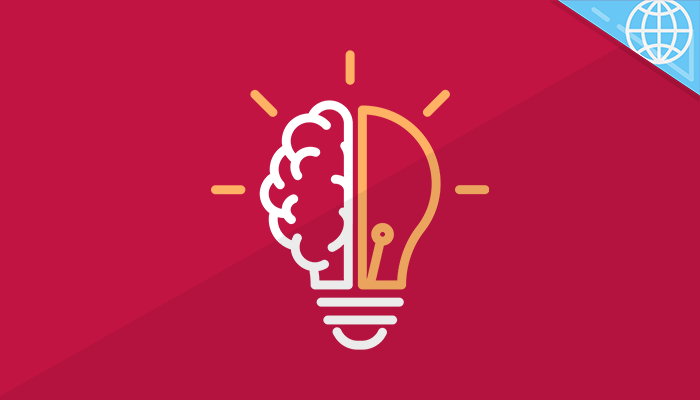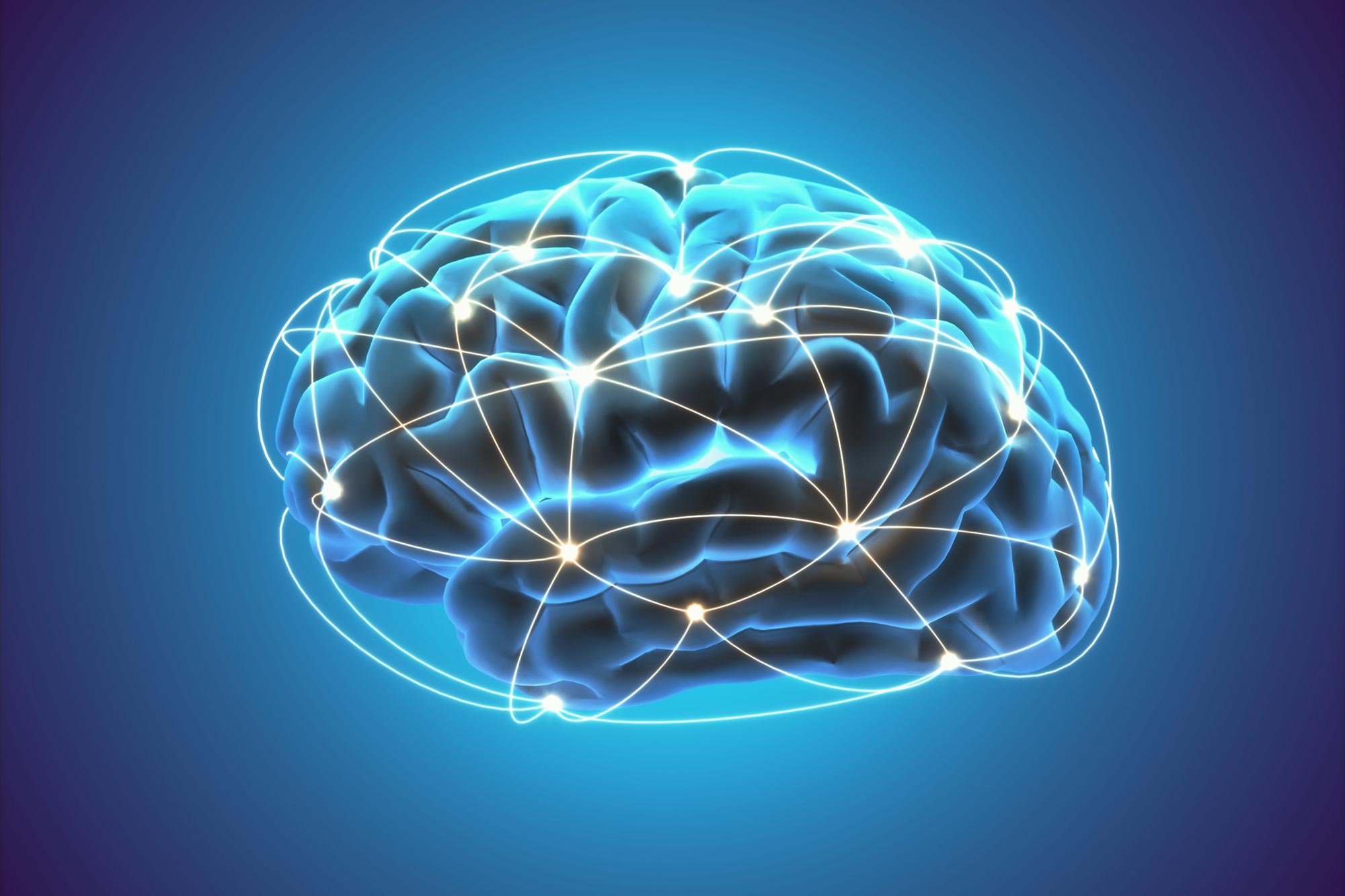Motivation can indeed influence one’s perception, shaping how they interpret and understand information or events. Motivation plays a significant role in shaping our perception of the world around us.
It influences how we interpret and understand information or events. When we are motivated, we tend to focus on details that align with our goals or desires, filtering out irrelevant information. This selective perception can lead to biases and skewed interpretations.
Additionally, motivation can enhance our attention and concentration, allowing us to notice important details that may have otherwise been overlooked. On the other hand, when we lack motivation, our perception may be less sharp, and we may be more prone to overlook or dismiss important information. Understanding the impact of motivation on perception can be crucial in various aspects of our lives, from learning and decision-making to relationships and personal growth.

Credit: news.mit.edu
Factors Influencing Perception
Motivation plays a significant role in shaping perception, as it can influence how individuals interpret and understand information.
Perception, the process by which we interpret and understand sensory information, is influenced by various factors. These factors can be categorized into biological and psychological factors. Understanding these factors is crucial as they shape how we perceive and interpret the world around us.Biological Factors
Biological factors play a significant role in shaping our perception. Our sense organs, such as the eyes, ears, nose, tongue, and skin, allow us to receive and process sensory information. These organs send signals to the brain, which then interprets the information and forms our perception. Moreover, our genetic makeup and physiological processes also influence perception. For instance, color blindness, a genetic condition, affects how individuals perceive colors. Similarly, differences in the sensitivities of our taste buds can alter our perception of flavors. These biological factors highlight the unique ways in which individuals experience and interpret their surroundings.Psychological Factors
In addition to biological factors, psychological factors also play a crucial role in shaping perception. Our individual experiences, beliefs, values, and emotions contribute to how we interpret sensory information. Perception involves not only the physical senses but also cognitive processes such as attention, memory, and expectation. These cognitive processes filter and interpret sensory information based on our previous experiences and learned associations. For example, if someone has had a bad experience with dogs in the past, they may perceive all dogs as threatening, even if they are harmless. Moreover, our motivations and goals can also influence perception. Research has shown that when we are motivated to achieve a certain outcome, our perception tends to be biased towards information that supports our goals. This bias can impact how we interpret and make decisions based on the information presented to us. In conclusion, perception is influenced by a complex interplay of biological and psychological factors. Our sense organs, genetic makeup, cognitive processes, experiences, and motivations all shape how we perceive and interpret the world around us. Recognizing and understanding these factors can enhance our understanding of human perception and its potential impact on various aspects of our lives.
Credit: www.litmos.com
Motivation’s Impact On Perception
Motivation plays a significant role in shaping our perception of the world around us. It acts as a driving force that influences how we interpret and understand the information that comes our way. Our level of motivation directly impacts our attention to detail, the filters through which we process information, and ultimately, our overall perception. In this section, we explore the fascinating connection between motivation and perception, examining how motivation impacts various aspects of our perceptual experience.
Selective Attention
One of the ways motivation affects perception is through selective attention. Selective attention refers to our ability to focus on specific stimuli while filtering out others. Our level of motivation can impact this process. When we are highly motivated, our brain naturally directs its attention to information that aligns with our goals or interests. This heightened attention allows us to perceive details that we might otherwise overlook. For example, if you are motivated to become a professional photographer, you are likely to pay closer attention to the details of composition, lighting, and framing in photographs, enhancing your ability to perceive and appreciate the nuances of the art form.
Perceptual Filters
Our motivation also influences the perceptual filters we use when processing information. Perceptual filters refer to the mental frameworks through which we interpret and make sense of the world. These filters can be shaped by factors such as our beliefs, values, past experiences, and, importantly, our motivations. When we are motivated to achieve a particular outcome or hold a specific belief, our perceptual filters are inclined to favor information that supports our goals or beliefs. This phenomenon is known as confirmation bias. For example, if you are motivated to lose weight, you may be more likely to perceive and remember information that aligns with your desired body image, while overlooking or dismissing information that contradicts it.
Motivation And Perceptual Interpretation
Motivation and perceptual interpretation are closely intertwined, with our motivational state often influencing the way we perceive and interpret information from our environment. Our motivation can shape our perception and provide a lens through which we view the world. In this article, we will explore two psychological phenomena – cognitive dissonance and confirmation bias – that demonstrate how motivation can affect our perceptual interpretation.
Cognitive Dissonance
Cognitive dissonance refers to the discomfort we feel when our beliefs or attitudes are inconsistent with each other or with our behaviors. This discomfort motivates us to reduce this dissonance by either changing our beliefs, justifying our actions, or seeking evidence that supports our pre-existing beliefs.
For example, let’s say you strongly believe in the benefits of a healthy diet but find yourself indulging in unhealthy foods regularly. This inconsistency between your belief and behavior can lead to cognitive dissonance. In order to reduce this discomfort, you may alter your belief by convincing yourself that occasional indulgence is acceptable or seek out information that supports the idea that certain unhealthy foods can be beneficial in moderation. This motivational bias influences how you interpret nutritional information and can potentially shape your dietary choices.
Confirmation Bias
Confirmation bias is our tendency to seek out information that confirms our pre-existing beliefs and ignore or dismiss information that contradicts them. This bias arises from our motivation to maintain a consistent worldview and avoid cognitive dissonance.
For instance, imagine you have a particular political affiliation and come across an article that presents an opposing viewpoint. Due to confirmation bias, you may be more inclined to discredit or ignore the information that challenges your existing beliefs, while actively seeking out information that aligns with your perspective. This bias influences how you interpret and evaluate information, reinforcing your pre-existing beliefs and potentially hindering your ability to consider alternative viewpoints objectively.
In conclusion, motivation plays a significant role in the way we interpret and perceive the world around us. Cognitive dissonance and confirmation bias are just two examples of how motivation can shape our perceptual interpretation. By being aware of these biases and actively challenging our own beliefs, we can strive for a more objective and accurate understanding of reality.
Motivation’s Influence On Perceptual Organization
Motivation has the power to influence our perception of the world around us, shaping how we organize and interpret incoming information. Whether it’s positive or negative, our level of motivation can significantly impact how we perceive and make sense of our environment.
Gestalt Principles In Perceptual Grouping
Motivation plays a significant role in how we perceive the world around us. One aspect of this influence is its effect on perceptual organization. Perceptual organization refers to how we mentally organize and interpret the sensory information we receive from our environment. It helps us make sense of our surroundings and understand the relationships between different elements. In this blog post, we’ll explore the ways in which motivation can shape our perceptual organization, focusing specifically on the principles of Gestalt psychology.
Perceptual Grouping And Motivation
The Gestalt principles of perceptual organization provide valuable insights into how we perceive the world as coherent wholes rather than isolated parts. These principles, such as proximity, similarity, closure, and continuation, help our brains organize visual stimuli into meaningful patterns. Motivation can influence how these principles are applied and shape our perception accordingly.
1. Proximity: When we are motivated to achieve a specific goal, our attention becomes focused on relevant information. This heightened focus can result in a stronger perception of proximity among objects or events that are related to our motivation. For example, if you are motivated to lose weight, you may be more likely to perceive a cluster of healthy food options as closer together in a grocery store, creating a perceived grouping that aligns with your weight loss goal.
2. Similarity: Motivation can also enhance our perception of similarity, leading us to group together elements that share common attributes. Suppose you are motivated to learn a new language. In that case, you may be more inclined to perceive words or phrases in the target language as similar, allowing for easier understanding and memorization.
3. Closure: The principle of closure states that our brains tend to fill in missing information and perceive incomplete objects as complete. Motivation can influence this process by biasing our perception towards filling in missing details that align with our goals or desires. For instance, if you are motivated to find a solution to a problem, you may be more likely to perceive incomplete information as complete, enabling you to arrive at a solution.
4. Continuation: Continuation refers to our tendency to perceive continuous and smooth patterns. Motivation can influence this perceptual grouping principle by directing our attention towards patterns that align with our goals or interests. For example, if you are motivated to improve your athletic performance, you may be more likely to perceive the trajectory of a ball or a player’s movement as continuous and smooth, enabling better anticipation and response.
Overall, motivation plays a crucial role in shaping our perceptual organization. By influencing the application of Gestalt principles in perceptual grouping, motivation can enhance our ability to make sense of the world around us. Understanding this influence can help us better comprehend how our motivations shape our perception and provide insights into how we can optimize our motivation to achieve our goals effectively.
Practical Applications
Understanding the connection between motivation and perception can have practical applications in various aspects of life. By recognizing how motivation affects perception, we can harness its power to drive positive change. In this section, we will explore the practical applications of motivation in marketing and personal development.
Motivation In Marketing
When it comes to marketing, understanding customer motivation is crucial for success. By uncovering what motivates customers, businesses can tailor their marketing strategies to align with these motivations, thus increasing the chances of conversion and customer loyalty. Here are some practical applications of motivation in marketing:
- Targeted messaging: By understanding customer motivations, businesses can create targeted messaging that appeals to the desires, needs, or aspirations of their target audience. This approach helps in capturing the attention of potential customers, making them more receptive to the marketing message.
- Personalization: Motivation data can be used to personalize marketing efforts by providing individualized recommendations, offers, or content that resonates with the specific desires and goals of each customer. This personalized approach creates a stronger connection between the brand and the customer, fostering loyalty and increasing the likelihood of repeat business.
- Incentives: Knowing what motivates customers can help businesses design effective incentive programs. By offering rewards or incentives that align with customer motivations, businesses can encourage desired behaviors such as making a purchase, leaving a review, or referring a friend.
Motivation In Personal Development
Personal development is an area where motivation plays a crucial role in achieving goals and self-improvement. By harnessing motivation effectively, individuals can drive themselves towards success and personal growth. Here are some practical applications of motivation in personal development:
- Goal setting: Motivation is a key driver in setting and pursuing goals. By understanding their motivations, individuals can set meaningful and achievable goals that align with their values, desires, and aspirations, increasing their chances of success.
- Creating positive habits: Motivation can be used to establish and maintain positive habits that contribute to personal growth. By understanding what motivates them, individuals can build routines and habits that support their goals, increasing their chances of long-term success.
- Overcoming challenges: Motivation provides the necessary drive to overcome obstacles and challenges on the path to personal development. By staying motivated, individuals can persist through setbacks, learn from failures, and continue their journey towards self-improvement.

Credit: scitechdaily.com
Frequently Asked Questions For Can Motivation Affect Perception
What Are The Factors Affecting Perception?
Factors affecting perception include personal experiences, cultural background, emotions, values, and social influence. These factors shape how individuals interpret and make sense of the world around them.
What Can Affect Your Perception Of Something?
Your perception of something can be influenced by various factors. These may include personal experiences, cultural background, emotions, and external influences such as media and social interactions. These factors can shape your understanding and interpretation of a particular subject or situation.
What Is An Example Of Motivated Perception?
Motivated perception occurs when someone interprets information in a way that aligns with their desires or motivations. For example, a person may believe a politician’s claims because they want those policies to be true.
How Does Motivation Affect Attention?
Motivation affects attention by increasing focus and enhancing cognitive processes. When individuals are motivated, they are more likely to allocate their attention to relevant stimuli and ignore distractions. This heightened attention allows for improved performance and better information processing.
Conclusion
Motivation plays a crucial role in shaping our perception of the world around us. It has the power to impact not only how we perceive ourselves and our abilities, but also how we interpret and interact with the world. By understanding the connection between motivation and perception, we can harness this knowledge to cultivate a positive mindset and achieve our goals.
So, let’s remember to fuel our motivation and embrace a perspective that empowers us to see the limitless possibilities life has to offer.